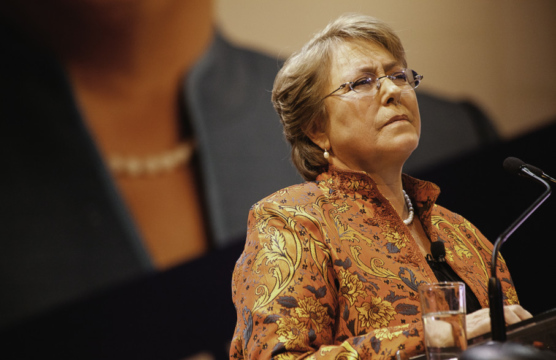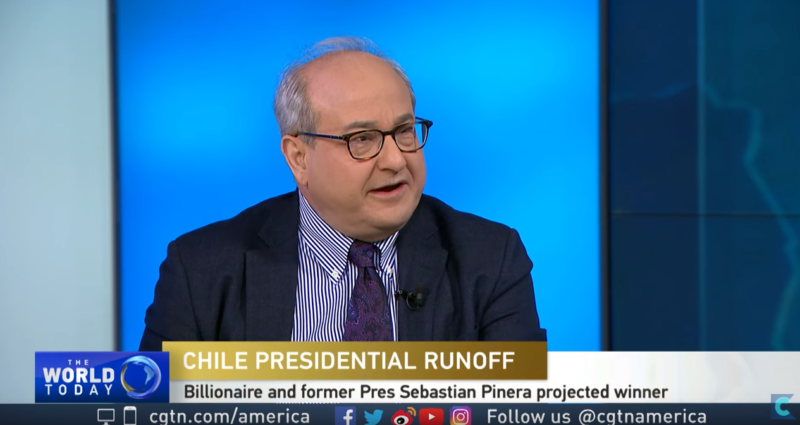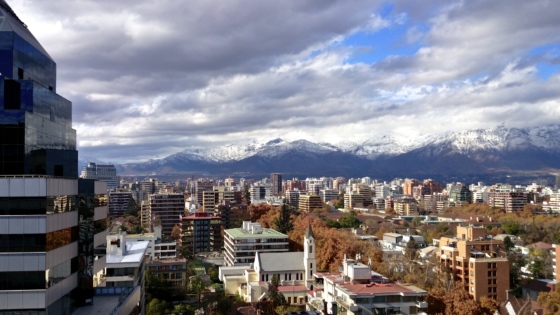
Bachelet’s Regional Challenges
Even before Michelle Bachelet began her second term she got a taste of the difficult regional climate she will have to deal with over the next four years.
Chile looked to the past to pick its future leader. Former President Sebastian Pinera is the projected winner of a presidential runoff election. With nearly all the votes counted, his challenger Alejandro Guillier conceded and congratulated the conservative billionaire on his victory. Michael Shifter, president of the Inter-American Dialogue, discusses with CGTN’s Susan Roberts.
“The polls in Chile were wrong again. They were wrong in the first round, when they thought that Piñera would win by a much larger margin, but he didn’t. And they were wrong in the second round, when there was expected to be a very tight race. This was really a very comfortable lead, and he got a lot more support than people expected, and also on the other side, his opponent, wasn’t able to mobilize a lot of the left in the country.”
“Piñera’s focus is economic. He talks about how Chile’s growth is now at 2%, when they were used to growing at higher rates. He says he is going to jumpstart the economy, get it growing again, bring in more investment, trade more, and everyone is going to be better off, that’s what he is promising to do. I think he is going to keep many of the policies of the Bachelet government, but will give less emphasis to the reforms, education reforms and others, than in the last four years.”
“Chile depends on copper, copper prices and a lot of other factors that he may not be able to control.”
“He is also going to have a very tough time governing. He has to govern with the left, with the center, with the Guillier that lost… so he is going to have to make deals and alliances with other political forces in the country in order to get through his agenda.”
“I think there was discontent in Chile. The polls showed that many people were not happy with the Bachelet policies, at least with the way that they were carried out. The goal of reducing inequality, I think, people shared overwhelmingly, but there has been some criticism on the way that Bachelet has gone about addressing those problems.”
“Piñera’s solution, his alternative, is to really focus on the economy, which he thinks was neglected during the Bachelet years.”
“I think Argentina is the clearest case [of a shift from left to right in Latin America]. In Brazil, the current president was not elected, he has a 5% in the polls, the president of Peru is in deep political trouble, so it is a bit shaky, it is not a very firm shift.”
Even before Michelle Bachelet began her second term she got a taste of the difficult regional climate she will have to deal with over the next four years.
Bachelet has started her term with an ambitious agenda that includes tax, education, and constitutional reforms.
El ex ministro está convencido de que el ex mandatario es la mejor carta de la Nueva Mayoría para enfrentar a la derecha en 2017 y encabezar un programa que rectifique las reformas, pese al desfavorable escenario político que reflejó la encuesta CE.
 CGTN America / Youtube
CGTN America / Youtube
